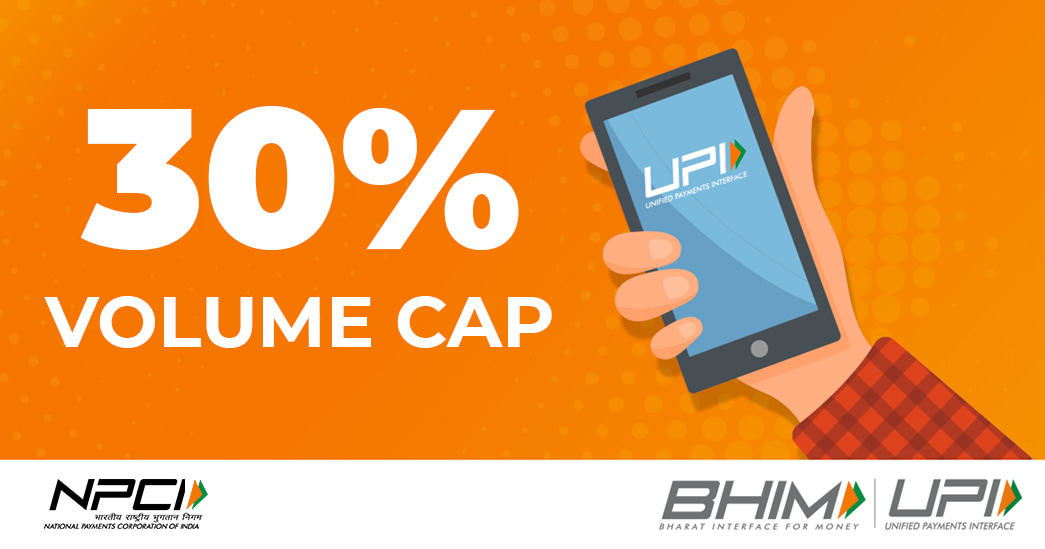Essentially creating a roadblock to the future growth of Google-operated Google Pay, Walmart’s PhonePe and Amazon Pay, the umbrella organisation behind UPI – the National Payments Corporation of India (NPCI) has set a cap of 30 per cent on the total volume of transactions processed in UPI, applicable on all Third-Party App Providers (TPAPs).
According to NPCI this capping would address the risks and protect the UPI ecosystem as it further scales up. It will essentially restrict a single entity or couple of entities to fully control and rule the UPI payment market. As you would know, PhonePe is the current market leader with almost 40% of UPI transactions going through it. They are closely followed by Google Pay (Tez) which also controls more than 35% of UPI transaction happening in a month. Thus both these third party UPI payment providers, control almost 80 per cent of the current UPI transitions happening in India.

The new 30 per cent cap on third-party app providers is calculated based on the total volume of transactions processed in UPI during the preceding three months on a rolling basis. So, once a third party UPI app crosses this cap they will get two years to comply with the capping and can be done in a phased manner.
However, it is not yet clear what happens if a third party UPI service provider hits the cap. Does NPCI block all further UPI transaction through the app or whether it would be allowed to carry out further, but with a limited number of daily transactions?
In both the above case, this will probably lead to massive UPI transaction failure for users using these apps. Taking the current situation, if you are currently using Google Pay or PhonePe for UPI transaction, then it would result in a more failed transaction. As of now, there is no clarity from NPCI on what would happen when a third party UPI payment app hits this cap. Yet, the payment organisation has set January 2021 as the starting date of implementation of this cap.
This cap on UPI transaction would also effect WhatsApp which has finally got the nod for its UPI payment service to go live in India.
Still, Facebook owned chat app welcomed the approval stating that the WhatsApp and UPI combination would boost rural participation in the digital economy.
Paytm and JioMoney win?
Interesting, NPCI is just capping third party UPI apps like Google Pay and PhonePe who are mere payment facilitators. While Paytm and Reliance’s Jio Payment Bank (Jio Money) seems to be not affected by this cap as they both are armed with a bank permit (Payments Bank).
According to a Paytm spokesperson “The transactions volume cap put on various payments apps will make sure that NPCI has de-risked and diversified the UPI platform”.
However, Google has criticised the move by NPCI saying it would essentially hinder the nation’s growing digital payments economy.
“This announcement has come as a surprise and has implications for hundreds of millions of users who use UPI for their daily payments and could impact the further adoption of UPI and the end goal of financial inclusion,” said Sajith Sivanandan, Business Head at Google Pay, India, in a statement.
Anyways only time can tell if this capping from NPCI would foster healthy competition, and further fuel the growth of UPI or just kills out the thriving UPI payment ecosystem for the sake of some people’s interest.


